The Best Probiotics for Women: Improve Your Gut Health and Overall Well-Being

Key Takeaways
Probiotics may offer a wide range of health benefits for women, particularly in supporting vaginal health, urinary tract health, and gut health. But what exactly are probiotics? How do they affect your body and gastrointestinal system? And how can they benefit various aspects of your health?
Probiotics are live microorganisms found in fermented foods, dietary supplements, and specific natural sources. These healthy bacteria can benefit the body in many ways and are most notably studied for their effect on digestion and the gut microbiome.
So, with all these potential benefits for gut health, what role might probiotics play in women’s health? Read on to explore the benefits and considerations before taking probiotics.
Why it May be Important for Women to Take Probiotics

Whether you get them from supplements, foods, or beverages, probiotics can offer specific benefits for women’s health. For example, studies suggest that probiotics may influence the health of the vaginal microbiome.
Factors that can affect this microbiome include:
- Age
- Sexual activity
- Ethnicity
- Illnesses or vaginal infections (e.g., bacterial vaginosis, urinary tract infections, or yeast infections)
A healthy vaginal microbiome is typically rich in Lactobacillus species (e.g., Lactobacillus acidophilus, Lactobacillus crispatus, Lactobacillus gasseri, and Lactobacillus plantarum), which have antibacterial properties. Some studies suggest these probiotics may help maintain vaginal pH, supporting overall health.
Probiotics may also benefit gut health. Research has shown that women are more likely than men to suffer from irritable bowel syndrome (IBS). Though individual results vary, probiotics may help reduce digestive health symptoms like gas and abdominal pain.
Emerging studies suggest probiotics may support pregnancy health, such as potentially influencing pregnancy length and reducing preterm birth risk. However, more research is needed to confirm these effects. Always consult your doctor before taking probiotics during pregnancy.
Potential Benefits of Probiotics for Women
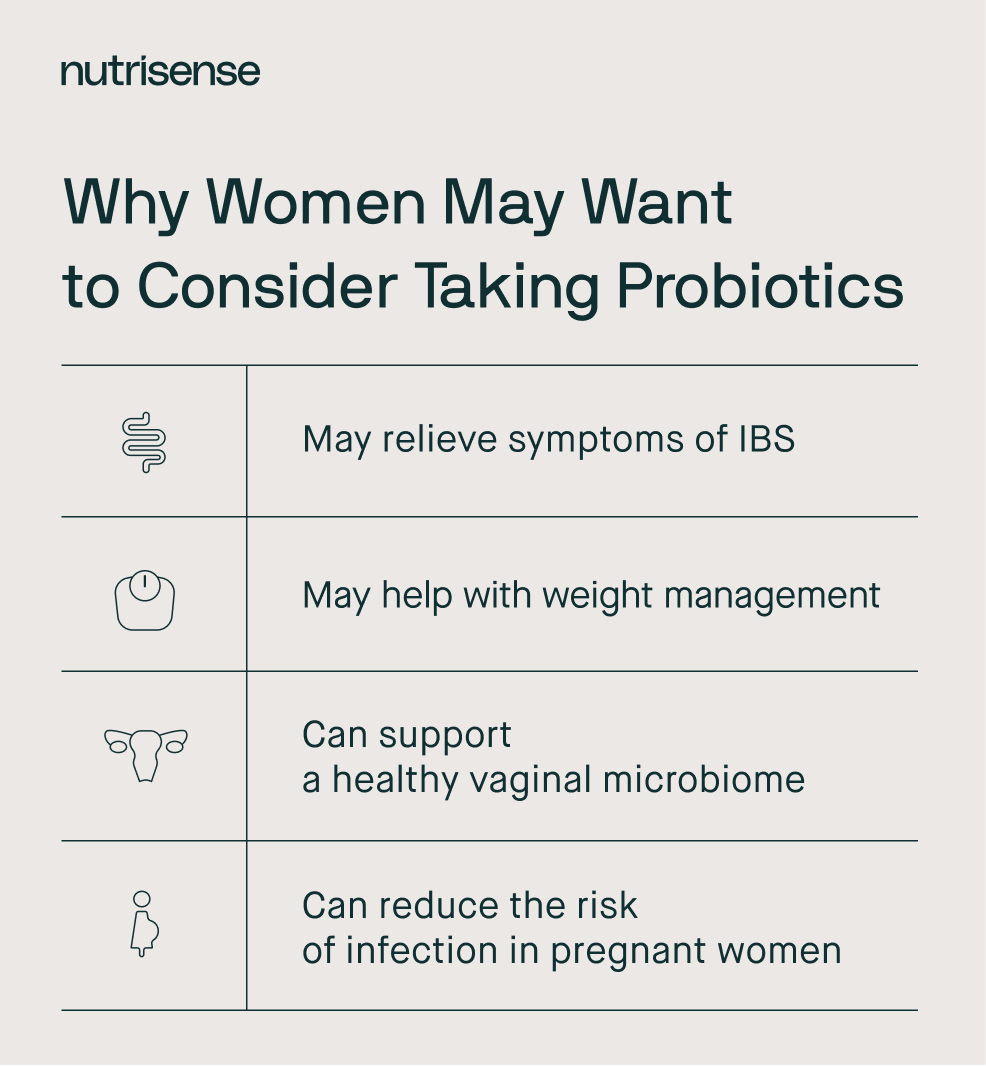
Probiotics may offer several health benefits for women, including:
- Supporting a healthy vaginal microbiome
- Relieving IBS symptoms and promoting gut health
- Possibly reducing the risk of infections during pregnancy
- Helping with weight management in some cases
- Fighting off bacteria that cause yeast infections and UTIs
- Maintaining a healthy gut microbiome and immune system, potentially reducing autoimmune disease risks (e.g., Crohn’s disease or rheumatoid arthritis)
- Supporting heart health by reducing risk factors for cardiovascular disease, strokes, and coronary artery lesions
- Improving skin health and reducing symptoms of eczema, acne, and psoriasis
- Enhances mood and mental well-being through gut-brain connections
While these benefits are promising, probiotics are not a cure-all. Choosing the right strains for your health goals and consulting a healthcare professional before starting a probiotic is essential.
4 Popular Probiotic Supplements for Women
First, you should know that probiotic products are measured in colony-forming units, or CFU, which indicate the number of viable cells. Most probiotics contain one to 10 billion CFU per dose.
However, other varieties may contain up to 50 billion CFU or more. Now that you know that, here’s some more information about the top options for women's probiotics recommended by experts.
1) Garden of Life Dr. Formulated Probiotics for Women
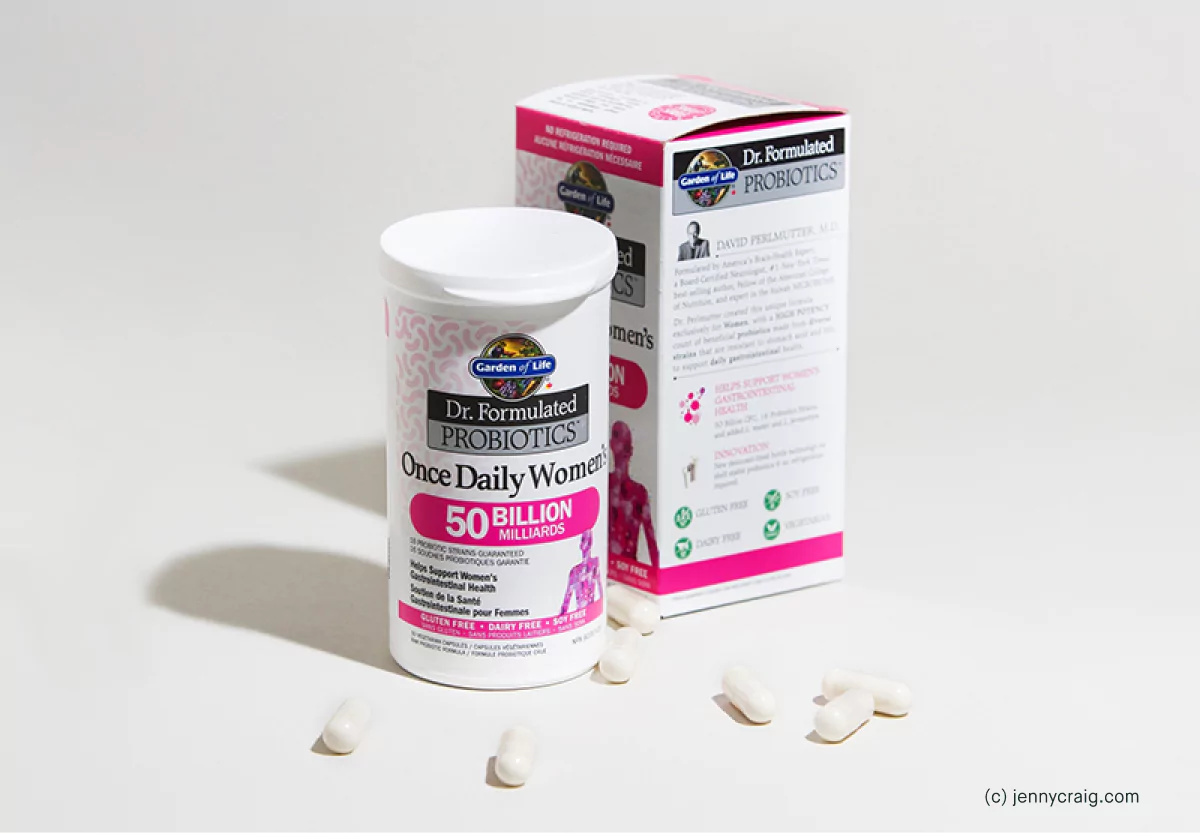
Garden of Life Probiotics for Women is a probiotic that contains 50 billion CFU from 16 strains, including Lactobacillus reuteri and Lactobacillus fermentum, which support vaginal, digestive, and immune health.
- Price: $30 for 30 capsules
- Pros: Shelf-stable, certified gluten-free, and vegetarian
Cons: Contains prebiotics, which may cause mild digestive discomfort for some
2) Culturelle Women’s Healthy Balance
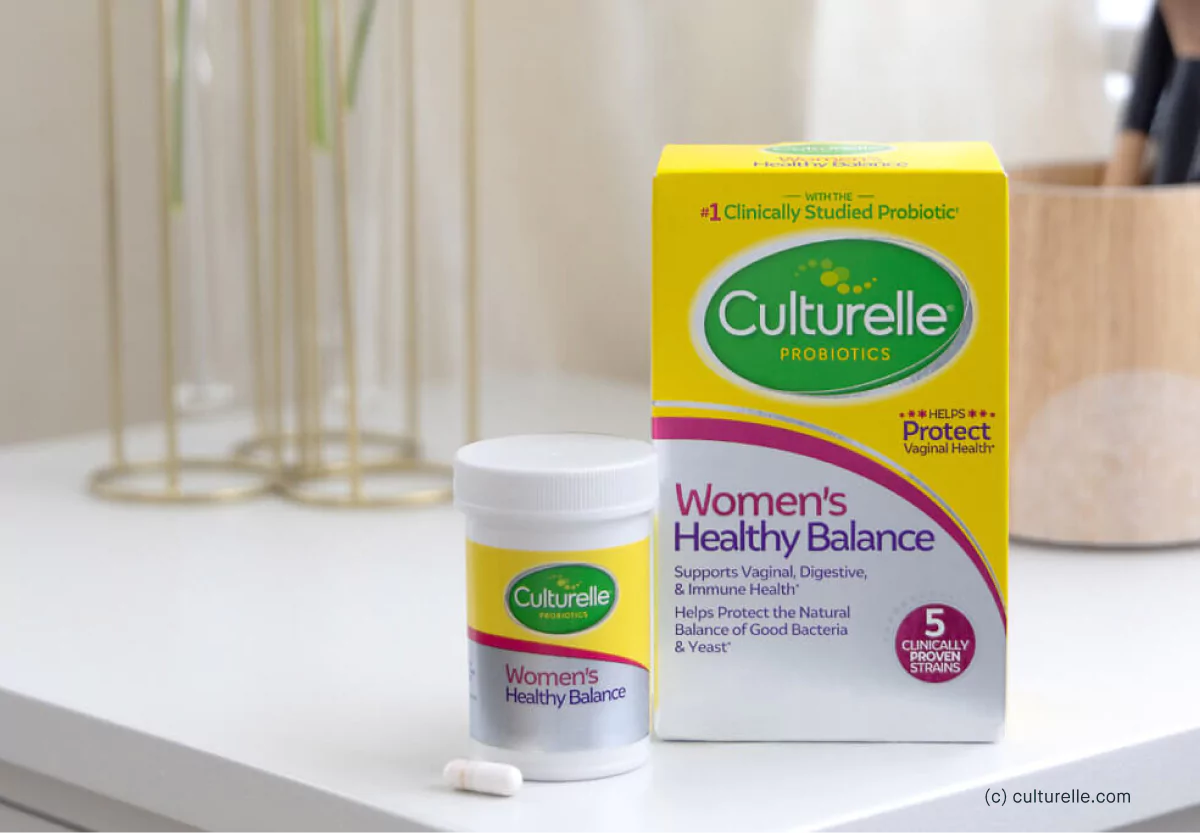
Culturelle Women’s Healthy Balance contains 15 billion CFU from four Lactobacillus strains commonly found in healthy vaginal microbiomes. It also includes Lactobacillus rhamnosus, which supports digestive and vaginal health.
- Price: $24.99 for 30 capsules
- Pros: Shelf-stable, vegetarian capsules
Cons: May cause mild bloating or gas initially
3) Lovebug Yeast + Vaginal pH Support
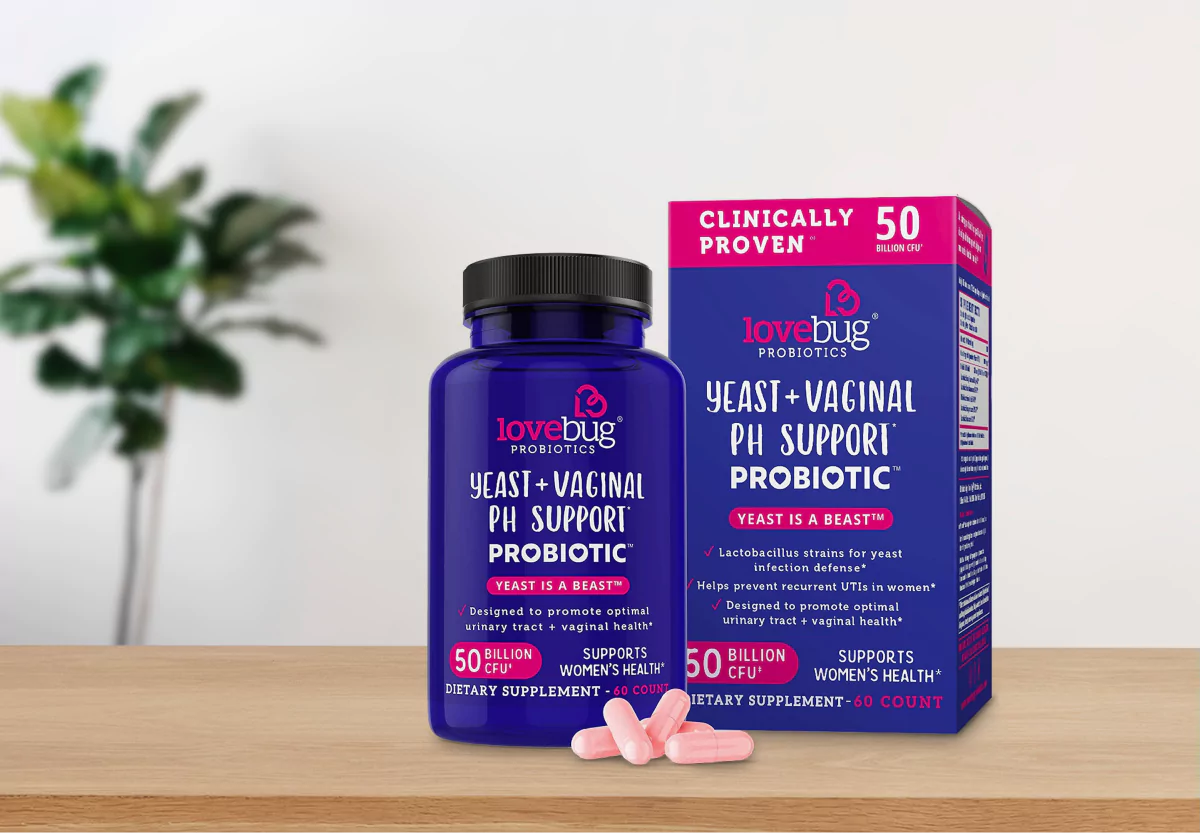
Lovebug Yeast + Vaginal pH Support provides 25 billion CFU from five Lactobacillus strains to help balance the vaginal microbiome.
- Price: $22.99 for 30 capsules
- Pros: Delayed-release capsules, vegetarian, dairy-free
Cons: Best if refrigerated; may cause mild bloating or gas initially
4) Ritual Synbiotic+

Ritual Synbiotic+ contains 11 billion CFU from Bifidobacterium animalis and Lactobacillus rhamnosus, plus prebiotics and postbiotics for gut health.
- Price: $54 for 30 capsules
- Pros: Vegan, gluten-free, no refrigeration needed
Cons: Not specifically for women’s health, relatively expensive
Signs You May Benefit From Probiotics
Since some people have potential health risks from probiotics, speaking with your doctor before starting any supplement is always a good idea. It's also important to remember that probiotics may only be effective for some. In addition to some of the benefits mentioned above, probiotics can affect many aspects of your overall health.
According to emerging research, probiotics could be beneficial for several concerns. Some of these might include:
Getting Sick Frequently

Probiotics have been shown to enhance immune system function and may reduce your chance of getting sick. However, it's essential to consult your doctor before trying probiotics to boost your immune function, especially if you have a weakened immune system.
Digestive Issues
Probiotics are widely known for their potential effect on digestive health. They've been shown to:
- Prevent diarrhea brought on by taking antibiotics
- Assist in maintaining the balance of your gut microbiome
- Potentially reduce symptoms of IBS like bloating, abdominal pain, and constipation.
Again, always talk to your doctor before taking a probiotic for digestive issues.
Skin Issues Such as Eczema or Psoriasis

Research has shown that probiotics may benefit skin health. Lactobacilli and Bifidobacterium have been shown to reduce skin inflammation and help manage skin conditions like atopic dermatitis, also known as eczema.
Mood Imbalances
Probiotics may even benefit your mental health! Some research has shown that Lactobacillus and Bifidobacterium may both reduce anxiety and depression.
Sleep Disturbances
An altered composition and decrease in diversity of gut microbiota has been observed in many of those who may struggle with sleep problems associated with chronic fatigue. However, this is a very complex condition, and research is ongoing here.
Other studies have shown that probiotics may improve sleep quality in people who experience insomnia.
What to Know Before Taking Probiotics

There are many different strains of probiotics, and it's essential to be aware of what type of probiotic blend you'll be taking, as not all probiotics on the market are high-quality or approved by the FDA. While probiotics are generally considered safe, some populations may experience side effects. So, before taking a daily probiotic, you should keep these considerations in mind:
- Immunocompromised individuals may experience serious adverse side effects from probiotic supplements, so be sure to consult with a licensed healthcare professional before taking probiotics.
- Consult a healthcare professional for guidance in choosing suitable strains for you and your health goals, whether you opt for a daily supplement, probiotic gummies, or a drink such as kombucha.
- Remember that everybody is different, and you may find that you respond differently to various strengths, formulas, or strains of probiotics.
6 Foods that Are a Strong Source of Probiotics
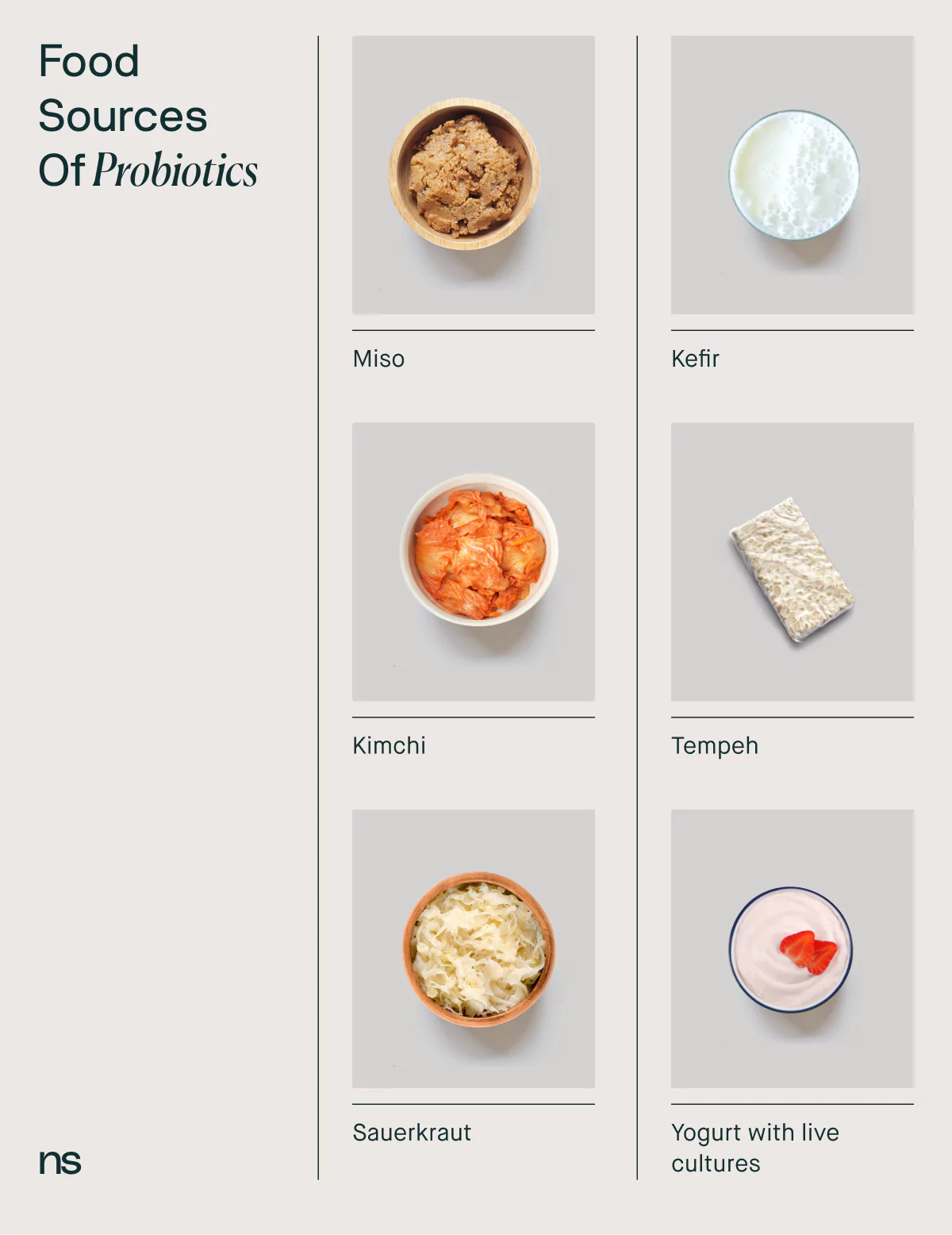
Of course, the best way to get your probiotics is from food! Probiotics are naturally found in various fermented foods, though it's important to note that not all contain live probiotics.
Since the quality and quantity of probiotics in fermented foods can vary widely, it's always best to check the label of any food for probiotic strains and the CFU (colony-forming unit). Here are a few fermented foods that are vital sources of probiotics.
1) Yogurt (with Live Cultures)
Yogurt is made by fermenting milk with probiotic bacteria, including Lactobacillus and Streptococcus thermophilus. Probiotics from yogurt have been shown to improve gastrointestinal well-being and gut health.
However, not all yogurt is made with probiotics, so choose plain yogurt (versus those containing added sugar) with active live cultures.
2) Miso
Miso is a fermented condiment that is a staple in Japan. It's made from fermented soybeans and contains a probiotic that has been shown to affect digestion and the immune system positively.
3) Kimchi
Kimchi is usually made from highly seasoned fermented cabbage, and contains probiotic lactic acid bacteria, including one called Lactobacillus kimchii.
4) Sauerkraut
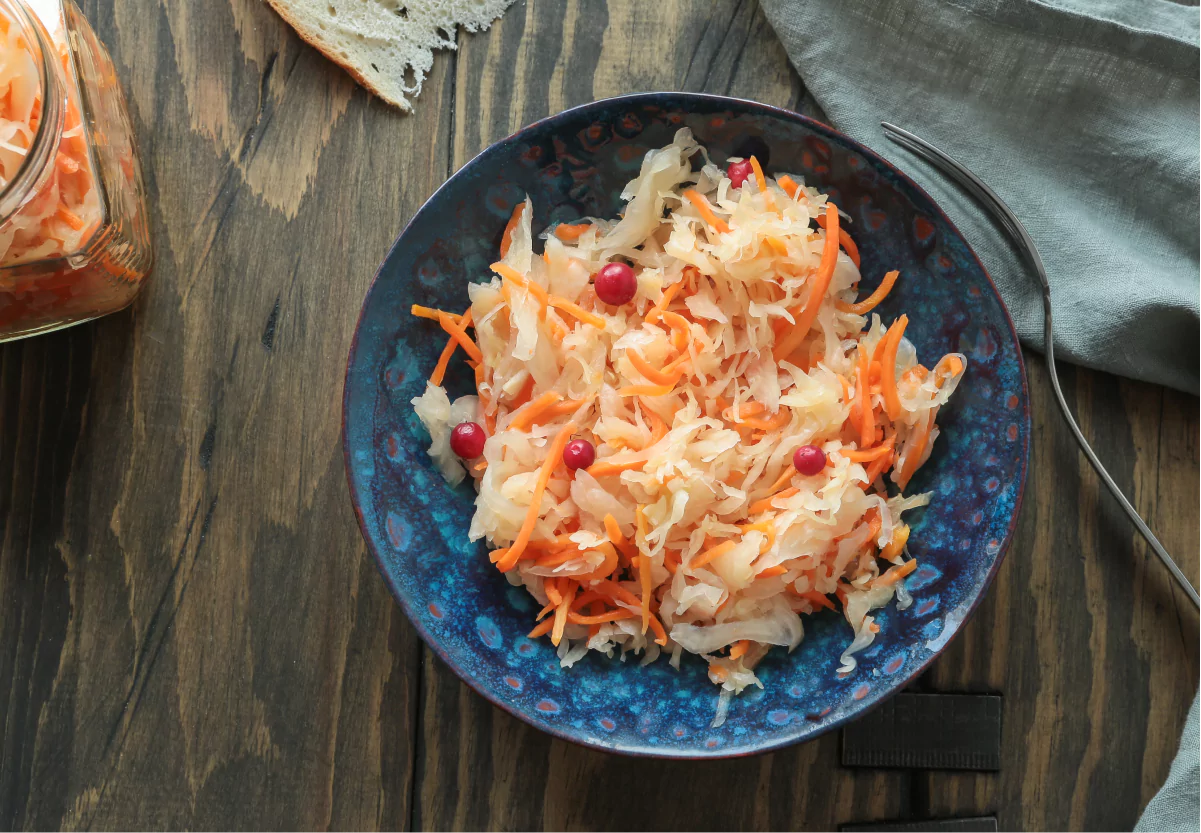
Sauerkraut is made from fermented cabbage and is used widely in the cuisine of central Europe. Research shows that commercial sauerkraut may contain up to 28 distinct strains of lactic acid bacteria.
5) Kefir
Kefir is a fermented milk product made by interacting with bacteria and yeast. It’s a natural probiotic containing Lactobacillus and has also been shown to improve lactose digestion for lactose-intolerant people. It may also have antimicrobial, anticarcinogenic, and immunomodulatory activity.
This wouldn't be an ideal choice if someone also experiences a dairy sensitivity or allergy.
6) Natto
Natto is a fermented soybean product that is popular in Japan. It's often used as a meat substitute and rich in probiotics like Bacillus subtilis, though some of these benefits may be lost during cooking.
As it comes from soybeans, natto is rich in protein and many vitamins and minerals and has been linked to improve heart and gut health.
Find the right Nutrisense programto turn insight into progress.
Find What Works for Your Body with Nutrisense
Did you know that not all probiotics work the same way for everyone? Choosing suitable strains depends on your unique body and health needs—and there’s no one-size-fits-all approach. Whether you’re optimizing your diet, want to heal your gut, are looking for weight loss solutions, including insurance-covered video calls with a registered dietitian and access to health tech like CGMs, you can make informed decisions about your diet!
Our experts offer personalized guidance based on your glucose data, your body’s needs, and unique health goals, helping you confidently navigate your diet and lifestyle. Ready to take control of your blood sugar and nutrition? Sign up today to start working with a Nutrisense dietitian who can help you find the right balance for your body.
Start by taking our quiz to find the perfect solution for your unique needs.
Go Beyond Glucose Data with Nutrisense
Your glucose can significantly impact how your body feels and functions. That’s why stable levels are an important factor in supporting overall wellbeing. But viewing glucose isn't enough. Nutrisense, you’ll be able to learn how to use your body's data to make informed lifestyle choices that support healthy living.
One-to-one coaching
Sign up to access insurance-covered video calls to work with a glucose expert: a personal registered dietitian or certified nutritionist who will help tailor your lifestyle and diet to your goals.
Monitor and measure what matters
With the Nutrisense CGM Program, you can monitor your glucose with health tech like glucose biosensors and continuous glucose monitor (CGM)s, and analyze the trends over time with the Nutrisense App. This will help you make the most informed choices about the foods you consume and their impact on your health.
Find your best fit
Ready to take the first step? Start with our quiz to find the right Nutrisense program to help you take control.





